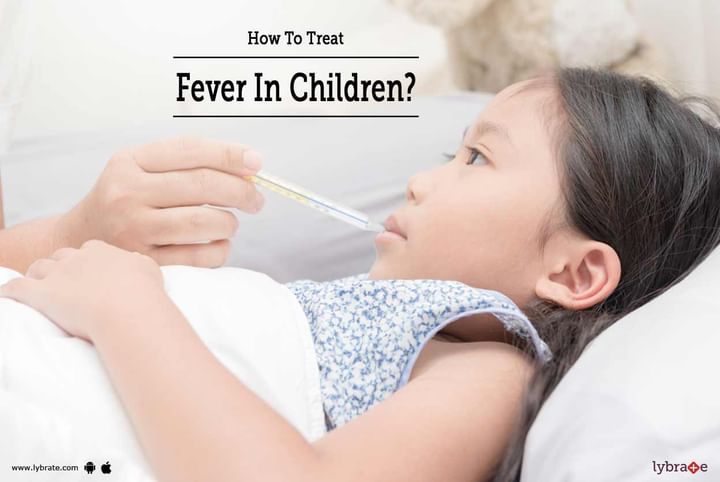How To Treat Fever In Children?
Let us imagine a scenario: It is 4 in the morning. You are fast asleep and suddenly you hear the discomforting cries of your child. You sense that something is wrong and you immediately rush to the other room. As soon as you touch him, you realize that the child's body is burning up like a furnace? You immediately rush to get your thermometer and the figures on it do not make for a good reading - 102 degrees F. Panic dulls your response rate. Your first reaction is to call the doctor. It might be the right thing to do in some rare cases, but in most cases experts advise differently.
Stay Calm - The most important thing is for you to stay calm and relax and realize that it is still well within your hand to take care of the child. First things first, fever is not your enemy. Rather, it is body's way of telling you that your immune system is fighting alien elements in your body. Children of the age group 0 to 3 almost always face high temperatures at some point in their nascent lives.
The Need of the Hour - How you should go about it depends on your child's age and thermometer's readings. If your child is a newborn or is less than 3 months old and reading is above 100.4 degrees, then you must call the doctor at once.
Between 3 to 6 months, temperature threshold is 101 degrees F, while 103 degrees F is usually the limit for children older than 6 months. But, if the child is showing alarming symptoms such as body ache, fatigue, and diarrhoea, along with the high temperature of 101 degrees F or 102 degrees F, then you should consider calling the doctor on a priority basis.
Take the Hints - Be Wary of the Symptoms
Keeping an eye out on the symptoms is extremely important. If your child has a running nose and low-grade fever (99-100 degrees F), then he might be suffering from a bout of common cold. Vomiting and diarrhoea usually indicate stomach virus. For children with weak immune system or at higher risk than others, it is advisable to consult a doctor.
A 24 hours rest is generally advised in flu, till the patient is fever free without taking any antibiotics. Ailments like an earache, sore throat or discomfort in peeing should be brought to the notice of doctor as it might indicate soar throat, UTI or ear infection, all of which require antibiotic treatments. Certain signs warrant an immediate medical attention. Discomfort in breathing along with constant crying, difficulty in walking, unusual rashes and purple looking spots demand that he be taken to the E.R. right away.
The most important thing is to complete the treatment course diligently and let the fever run its course as it may actually aid the body in building immunity against the fever causing germs and fight them. One must remember that being calm and relaxed at taxing times go a long way in helping you take right decisions and treating fever in children is all about patience and right decisions. If you wish to discuss about any specific problem, you can consult a Pediatrician.



+1.svg)
